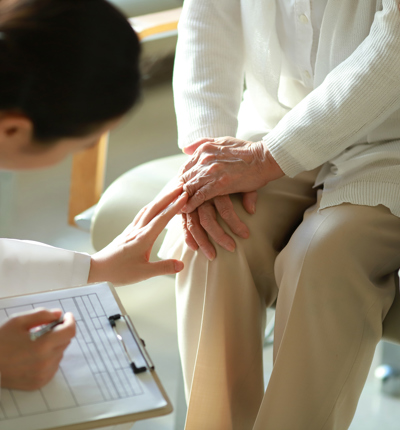
Potential legal case against largest UK care home operator HC-One
Law firm Leigh Day has announced that it is investigating potential legal action on behalf of families in England and Scotland against the UK's largest care home operator HC-One over allegations that systemic failings at their homes led to hundreds of COVID-19 deaths which would otherwise have been avoided.
Posted on 10 September 2020
Amongst the families represented by Leigh Day are the relatives of Colin Harris, who was one of ten residents of Home Farm, a HC-One owned care home on the Isle of Skye, who died during a COVID-19 outbreak at the home which saw a total of 30 residents and 29 staff testing positive for the virus.
Colin’s widow Mandie is now demanding to know what HC-One knew of the risks to the residents from the COVID-19 virus, what it did to protect residents and whether systemic failings across the HC-One network of care homes, including the movement of workers between homes and accepting admissions direct from hospital, led to the unnecessary deaths of thousands of residents.
Following an unannounced inspection on the 12th and 13th May 2020, the Care Inspectorate, which is responsible for monitoring care homes in Scotland, found that Home Farm Care Home was ‘unsatisfactory’ on all five particular areas it reviewed.
Under the heading ‘How Good Is Our Leadership?’ the Care Inspectorate wrote of the Home Farm Care Home:
“At the start of the outbreak the provider was resistant to working effectively with NHS Highland and did not make the most of the support that was available despite serious concerns about the quality of people's care, the environment, staffing and leadership. For example, initial offers to assist with cleaning the care home and disinfecting it with a recommended cleaning product were refused. This placed people at unnecessary risk.”
In May this year the Care Inspectorate took legal action to have HC-One removed as the main provider of care to residents following an unannounced inspection of the home that raised "serious concerns" about the quality of care. Earlier this month it was announced that the care home would be taken over by NHS Highland.
Leigh Day has also begun investigating the death of a resident in a care home in England, on behalf of the family of a 80 year old resident, who died in April 2020, when a COVID-19 outbreak at a HC-One care home in Nottingham is believed to have led to the deaths of a number of residents.
HC-One, which runs 329 care homes across the UK, was formed in 2011 following the collapse of the UK's then-largest nursing home operator, Southern Cross Healthcare.
HC-One has a complex corporate structure, with 50 companies, six of which are registered offshore either in the Cayman Islands or Jersey and a further five in the UK as foreign entities. Investors include the US based private equity firms Formation Capital and Safanad.
According to the Financial Times, the company paid its shareholders more than £48.5m in dividends between 2017 and 2018 despite declaring a loss every year except one since its creation in 2011, whilst issuing warnings that local authority funding cuts have brought the sector to the brink of a financial crisis.
According to the paper HC-One appears to have paid no UK corporation tax during 2017 and 2018, and instead received net tax credits of £6.5m since a reorganisation in 2014.
Richard Meeran, a partner at Leigh Day who is representing the families, said:
“We have heard so much about what has been done by the Government and by these private companies to protect residents of these care homes, yet the figures are still difficult to find and it is our belief that the true scale of deaths from COVID-19 in privately-run care homes in England and Scotland is far worse than we can imagine at this stage.
“These private companies, that pay no tax in the UK, are making millions for shareholders whilst going with their begging bowls to the tax-payer for PPE and testing.
“With the amount that they are charging for local authority funded residents and the extortionate rents they ask families to pay privately, rising each year way above inflation, they must account for the quality of the care they provide and whether consideration of profit comes before the safety of their residents and staff.”
To speak to the team about your experiences, please email carmstrong@leighday.co.uk

